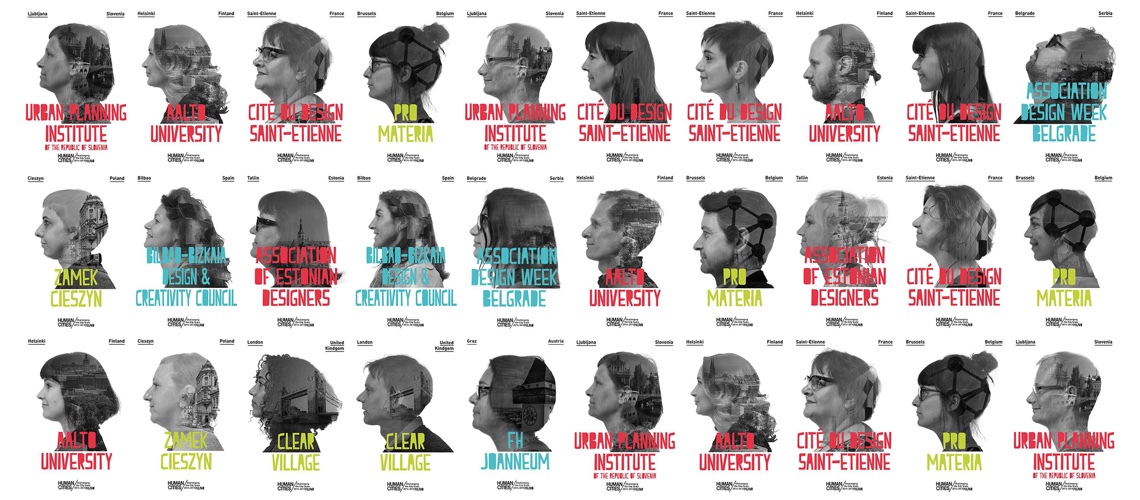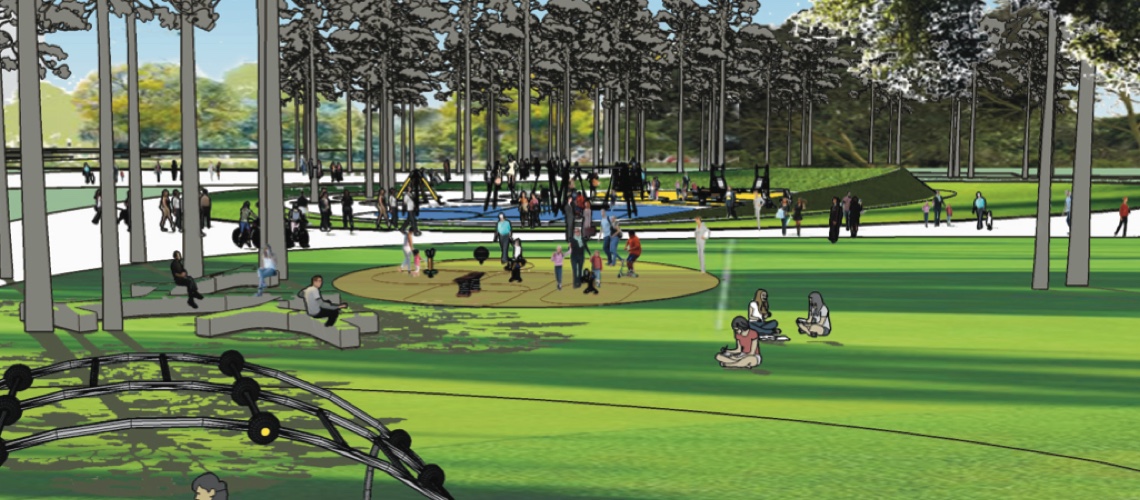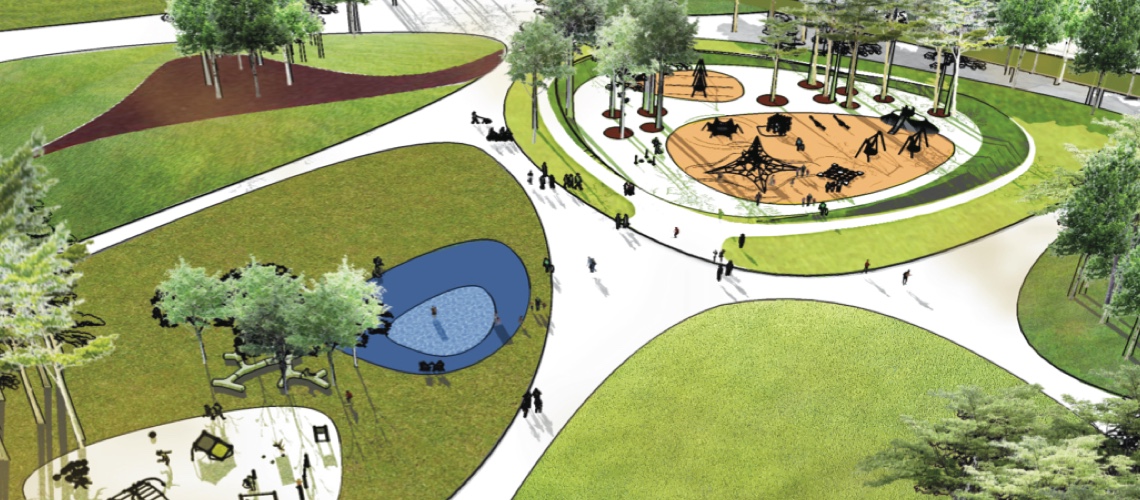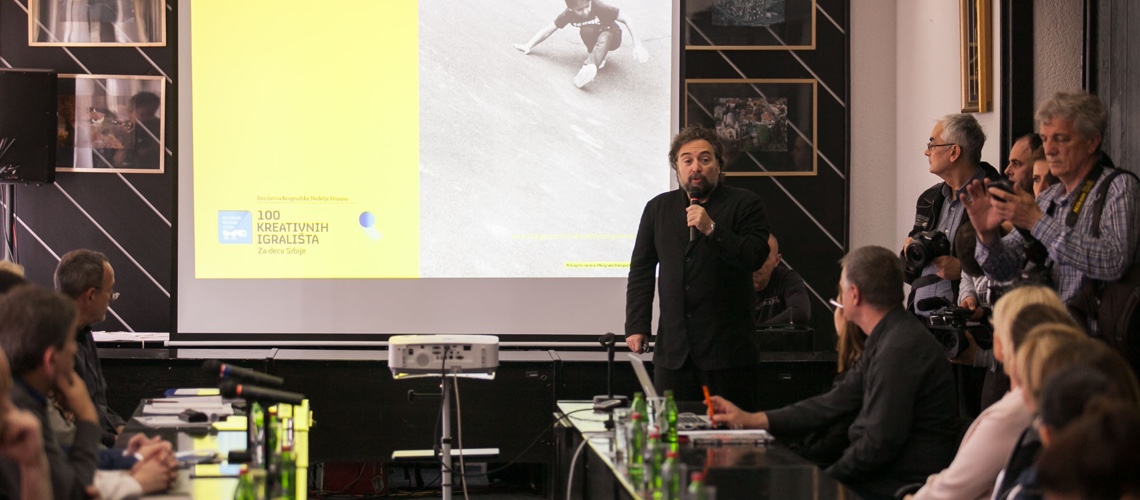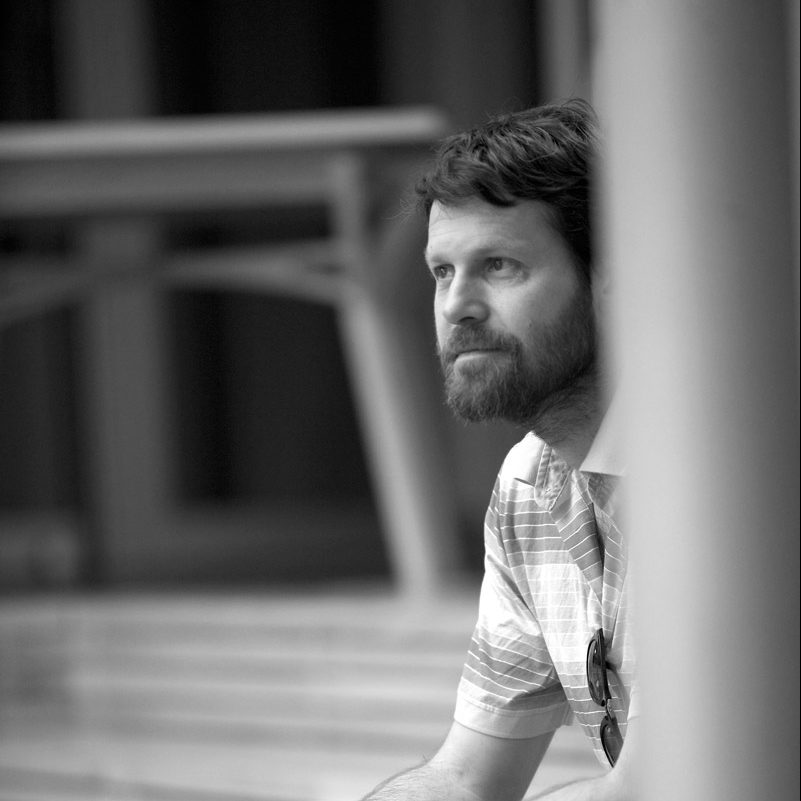Human Cities/ Challenging the City Scale 2014-2018
Human Cities/ is a concept created in 2006 by the Belgian association Pro Materia and co-funded from 2014-2018 by the Creative Europe Programme of The European Union. It is a platform of interdisciplinary exchanges. This European network is about exploring the way in which the inhabitants reclaim the constantly evolving contemporary city (especially through experiments in the urban space) and ways of (re)inventing city life, as sources of wellbeing and quality of life. These structural changes are impacting both people and places like shops in town and city centres. Today this project is led by Cité du Design from Saint-Etienne.
Human Cities network highlights 13 strong and shared values:
- Empathy
- Wellbeing
- Sustainability
- Intimacy
- Conviviality
- Mobility
- Accessibility
- Imagination
- Leisure
- Aesthetics
- Sensoriality
- Solidarity
- Respect
Human Cities shared all theses values with strong Partners such as : La Cité du design (FR) – Politecnico di Milano (IT) – Urban Planning Institute of the Republic of Slovenia (SI) – Clear Village (UK) – Zamek Cieszyn (PL) – Association Design Week Belgrade (RS) – Pro Materia (BE) – Aalto University (FI) – FH Joanneum (AT) – Association of Estonian designers (EST) – Beaz (ES) – CultureLab (BE).
The Human Cities project is planned according to different programs of which the first is ‘Human Cities State of the Art’ from November 2014 until September 2015. The 6 following programs are ‘Experiment labs’ from April 2015 until April 2017, ‘User experience and analysis of experimentation results’ from March 2016 until June 2017, ‘Productions, dissemination and public outreach’ from January 2015 until September 2018, ‘Meeting the audiences and organizing public events’ from March 2015 until September 2018, ‘Human Cities Masterclasses’ from April 2016 until May 2018 and ‘Management’ & ‘Communication’ from October 2014 until September 2018.
Towards an interdisciplinary process for a better sustainable living in the cities
Based on the encouraging results of a first international colloquium in Brussels in 2007, Lise Coirier and Chantal Vanoeteren brought their experiences together in order to launch “Human Cities”, a European cooperation project supported by the Culture programme 2007-2013 of the European Commission.
Since 2008, the Human Cities/ network gathers Pro Materia (BE), the Faculté d’Architecture La Cambre Horta de l’ULB (BE), the Politecnico in Milan (IT), the Institute for Urban Planning in Ljubljana (SLO) and the Lighthouse in Glasgow (UK) which is replaced since 2010 by the Cité du Design in Saint-Etienne (FR). They all work together in order to highlight and tackle the uses and attitudes of people in urban public space. They question the socio-cultural issues of urban design ranging from public spaces to urban furniture and objects in European cities today.
Human Cities as a European city hub
Urban public space and the urban fabric are emerging more and more as a field of creative intervention and collaboration between artists, designers, architects, sociologists, writers and philosophers, urban planners and landscape architects. In this context, Human Cities/ proposes interdisciplinary research and actions that aims enhance the emergence of creative cities seen much as a laboratory for informal, temporary, creative performances and installations of static or moving forms and objects challenging our existing art, architecture and design stereotypes.
Sustainability and creativity in urban design are also more and more connected to educational and participative programmes reaching all kind of public within the already explored and not yet studied urban territories. Both are also linked to more dense digital and media environments surrounding us as well as to the ephemeral, the temporary and the creation of new typologies of public space where creative people can meet, play, live and enjoy the site specificity and qualities of the places to be.
European cities today face both frightening threats and exhilarating challenges, becoming harder to manage and to understand, while fostering their role as the drivers and hubs of our economies. Not only must they compete in attractiveness, in order to encourage talents-both creative and academic-to move in (or not to move abroad), they also need to create a framework that promotes their human capital, while coping with social fragmentation and sustainability. Human Cities/ as a project and philosophy is therefore positioning itself towards artifacts and spontaneous creations which are seen and perceived in their uses, living scenarios as well as in their complex urban perspectives.
